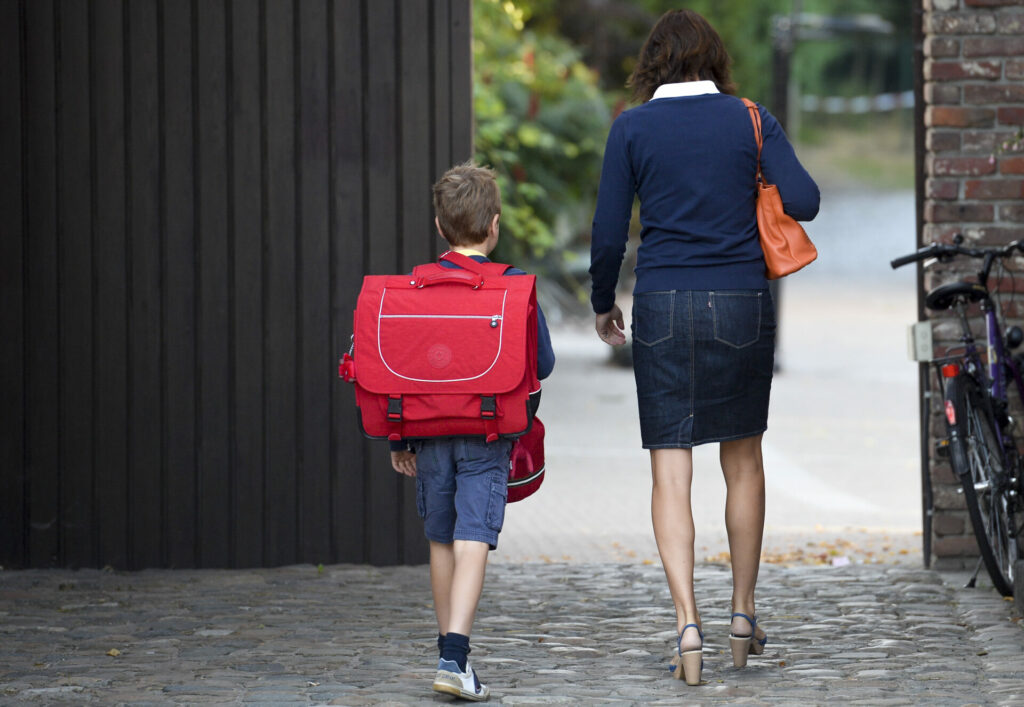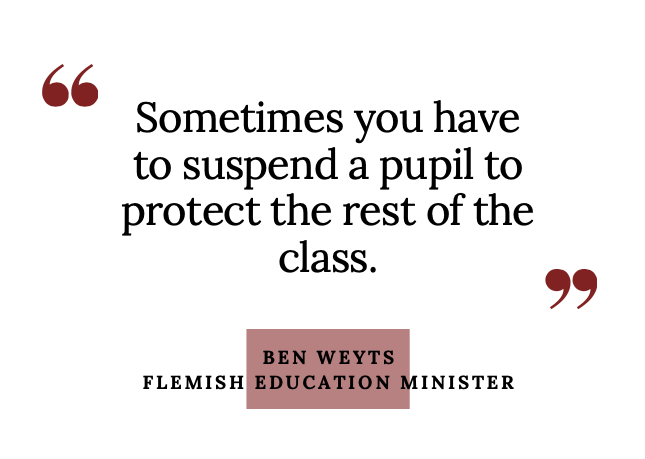Every day, around 20 pupils were either temporarily or permanently suspended from schools in Flanders during the last academic year, a worrying trend, according to Flemish Green Party (Groen).
In the 2021-2022 academic year, Flemish pupils were temporarily suspended from secondary or primary school 22,601 times, almost 10,000 more temporary suspensions than the previous year, while pupils were permanently excluded 3,516 times, more than double in one year, figures compiled by Flemish MP for the Greens, Elisabeth Meuleman.
"This amounts to 20 suspensions every day! A suspension has an impact on life, and these are children who need help. That more and more pupils are being punished in such a severe way is a worrying trend," Meuleman said.
Last resort
A pupil can be suspended if there is a serious breach of the school's rules, but is used as a severe punishment, and therefore is a last resort when other measures have failed. If a pupil is temporarily excluded from classes, they must remain home for up to 15 consecutive teaching days.
If this doesn't solve the problem, the class council can meet and permanently exclude a pupil. Last year, more than 100 children in primary education had to look for another school.
Flemish Education Minister Ben Weyts (N-VA) said in a statement that headmasters only take this step when all else fails. "Schools really don't just suspend pupils for fun," he told The Brussels Times.
"Teachers have unfortunately noticed for years that there is less discipline among pupils. Then sometimes you have to suspend a pupil to protect the rest of the class," said Weyts, adding that parents also have to take responsibility.
Meuleman, however, stressed that in some households, parents may not be around, have problems of their own or they may not be able to find appropriate help. "There are reasons why children exhibit problem behaviour. Do we leave them to their own devices?" she asked.
Support and prevention
Meuleman noted that these figures are proof of another side-effect of the chronic teacher shortage that Flanders is facing, and results in staff having little capacity or support to intervene quickly in minor incidents, which could prevent escalation.
"Education is at its wit's end, there is not enough room for prevention and support due to the ongoing teacher shortage," she noted.
So-called "care staff" who are usually responsible for dealing with these issues are often themselves in front of a classroom teaching due to these shortages, meaning they can also not always provide the support pupils need. " Students who are struggling are the biggest victims of this," Meuleman added.
Related News
- 'Sailing blind': Four years of tests could become mandatory in Flemish schools
- 'Dramatic' rise in babies and toddlers in youth care
Children's rights commissioner Caroline Vrijens called on schools to maintain a balance between having a care policy and a sanctions policy, explaining that disciplinary sanctions are too often a response to welfare problems.
"Let it be clear: we, as well as pupils themselves, are in favour of clear rules at school. Learning should be allowed in the first place. But that need not mean rushing through the spectrum of measures at a dazzling speed and just passing the pupil on to the next school," she told De Standaard.


